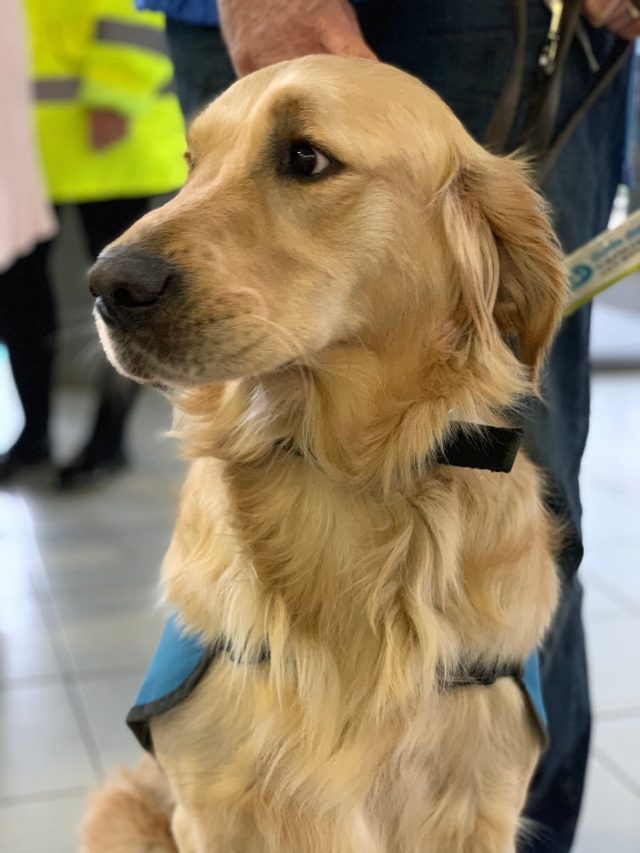With continued airline travel disruptions predicted this summer, there has never been a better time to enjoy a holiday in the UK – and many of us will be taking our furry friends along for the ride.
Though a road trip is fun and exciting for us, it can be a totally different experience for our pets, and PDSA, the vet charity for pets in need, is advising pet owners to take extra precautions before setting off on your adventure.
PDSA Vet Nurse Nina Downing said: “Being able to take your pet with you on holiday can be wonderful for you and for them, but ensuring they are safe and comfortable when travelling is essential. Long-distance car journeys can be taxing for everyone at the best of times, but there are a few things you can do to make sure your furry family member is happy and safe.”
See below for Nina’s top five tips for keeping your pet safe on the road:
Preparation
“Ideally, it’s best to get dogs accustomed to being in a car from a young age so they feel at ease during longer journeys. Start out with just sitting in the parked car to get them used to it, then progress to short trips and build up to longer journeys. Always end your drive with a reward such as a healthy treat, walk, or some play time.
“Before you set out, give your pooch a chance to have a drink and stretch their legs – after all, being cooped up in a car for a long time isn’t comfortable for anyone. Make sure you plan plenty of stops in to your journey so that your dog can go to the toilet and have a drink.
Strapped in safe
“Most of us don’t realise that our pets shouldn’t be loose inside a car, even if we’re holding them. The Highway Code states that drivers ‘must make sure dogs and other animals are suitably restrained’ in the car. So, if you are involved in a car crash and your pet is unrestrained, the accident could be perceived as being due to you being distracted by your pet, which may be classed as dangerous driving and could invalidate your car insurance.
“Thankfully, there are plenty of places to buy special pet seatbelts, harnesses, and carriers to keep your furry friend safe and secure. Have a look at our pet travel range on the PDSA Pet Store for inspiration.
Keep them cool
“Cars can quickly reach sweltering temperatures on warmer days so, if necessary, consider leaving early in the morning or in the evening to avoid the hottest part of the day. Try to keep the car at a comfortable temperature – sun shades and cooling mats are a good idea during summer months.
“Remember to check the temperature in the back of the car as, although most cars have great air conditioning for front passengers, back seats or the boot can heat up very quickly and become dangerously warm for your pet. As tempting as it may be, avoid letting your furry friend stick their head out of the window while driving, as it can be very dangerous to both themself and other drivers. Never leave your dog in a car on a warm day, even just for a few minutes.
Hydration is key
“It’s essential to keep your pet hydrated throughout your car journey, so make sure to pack plenty of water for your trip. You can even find non-spill water bowls especially designed for travelling furry friends.
Car sickness
“Pets can suffer from car sickness just like us, so taking short practice trips before a long journey will enable them to get used to the motion and help them avoid getting sick. Avoid feeding them right before a car ride, but if they become carsick even on an empty stomach, talk to your vet to see if they can offer medication to settle your pup’s tummy.
“Just like humans, some dogs feel less nauseous if they face forward while travelling, rather than looking out of the side windows – sun shades can be a great solution to help block their view. Some people prefer to use crates for safety, and they do have the added benefit of helping dogs feel comfortable – as well as containing vomit should your pup become ill.”
PDSA is the UK’s largest vet charity. We’re on a mission to improve pet wellbeing through prevention, education and treatment. Support from players of People’s Postcode Lottery helps us reach even more pet owners with vital advice and information. www.pdsa.org.uk




